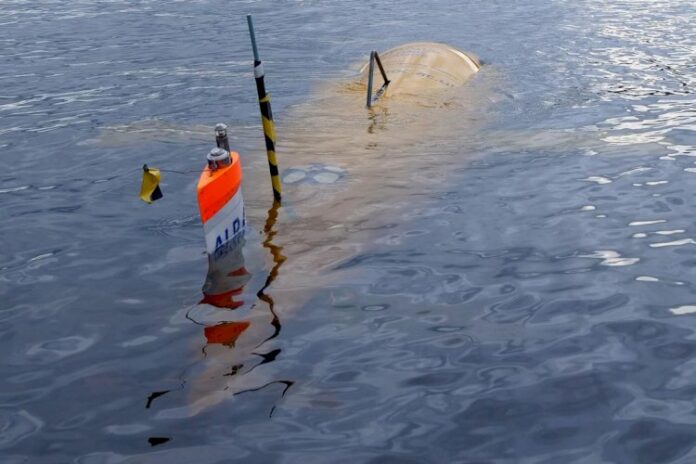The Royal Navy, Defence Science and Technology Laboratory (Dstl) and the National Oceanography Centre (NOC) have renewed and expanded their Memorandum of Understanding (MoU) within the underwater environment and collaboration in trials and testing of Marine Autonomous Systems (MAS) and novel sensors for the collection of marine data. The MoU will broaden the RN’s capability in the utility and deployment of autonomous and robotic underwater systems.
The RN, Dstl and the NOC all have a great interest and wealth of expertise to share about the ocean environment, albeit from slightly different perspectives – classically the RN representing the warfighter/tactical view, whereas the NOC is focused on Science and Technology (S&T) and Research and Development (R&D), with Dstl falling into both tactical and S&T spheres. However, as the RN leans forwards into innovation, agile working and new methods of operating, seeking support from the NOC’s world-class academic and research pedigree, is a ‘no-brainer’.
The first iteration of the MoU – signed in 2014 – focused on the joint development and trials of unmanned underwater vehicles (UUVs) and other marine robotics. However, as Defence and the RN in particular has re-focused its attention on the North Atlantic, seeking operational advantage in this area, the breadth of the MoU has been adjusted to encompass a wider scope of potential collaborative projects and information sharing.
Commodore Mike Knott, ACOS Maritime Capability and Force Development, and RN sponsor for the MoU, said:
“The Royal Navy is on an exciting journey to modernise and optimise our ability to collect and exploit hydrographic and oceanographic information. This enduring MoU allows the Royal Navy to work closely with the National Oceanography Centre and Defence Science and Technology Laboratories to collaborate in developing our world leading expertise in Marine Science. Consequently, it will ensure that the operational decisions we make will be based on the most up-to-date environmental data.”
As the UK’s centre of excellence for oceanographic sciences, the core remit of the NOC is to provide national capability and leadership for big ocean science. Naturally, this has great relevance for the RN and Dstl, particularly at a time when operational advantage is determined by an organisation’s ability to use data, information, and intelligence effectively.
NOC Associate Director, National Marine Facilities, Leigh Storey, commented:
“There continues to be multiple opportunities for the NOC to work closely with the Royal Navy and Dstl, from scientific interpretation of oceanographic data to joint development of autonomous systems, from the coast to the deep ocean. I very much hope this MoU acts as a launch pad for even closer collaboration and focussed alignment of future development opportunities.”
Dstl’s role in the partnership is to help shape the RN’s direction of travel in terms of future capability, through their own research, but also through enabling a greater level of engagement with other researchers and academics in the field.
Dstl Senior Principal Scientist (Ocean Environment), Timothy Clarke, said:
“As the science providers for UK national security, Dstl provides impartial and evidence-driven analysis to customers. By harnessing the latest technologies and expertise within the National Capability we will enhance the RN’s understanding of the applications of autonomous underwater vehicles for operational advantage.”
Potential collaborative projects in the short to medium term include enabling access to the National Marine Equipment Pool (NMEP) – equipment within the Marine Autonomous Robotics Systems (MARS) fleet such as marine gliders, remotely operated vehicles, autonomous surface and underwater vehicles, as well as the research vessels RRS James Cook and RRS Discovery. Through the MoU all three organisations will continue to develop and test Marine Autonomous Systems (MAS), that the NOC is famous for, and their application to defence contexts and scenarios.
Additionally, this is a key time for ship operators with mounting pressure to de-carbonise operations and infrastructure, particularly with the UK Government’s Net Zero 2050 goal. Hence, another prospective line of work is investigating the possibilities and options for designing, developing and operating a net zero fleet, to cement the NOC, RN and Dstl at the forefront of sustainable oceanographic science and technology.



